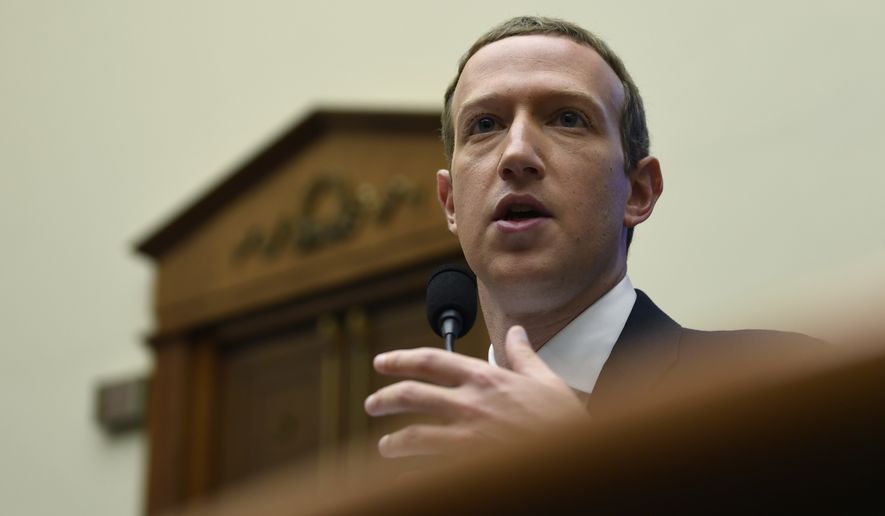Mark Zuckerberg, Facebook’s co-founder and CEO, defended his company’s policy against fact-checking political advertisements amid encountering criticism Wednesday on Capitol Hill.
Mr. Zuckerberg spoke again in support of Facebook’s controversial new advertising policy while under scrutiny during a hearing held by the House Financial Services Committee.
“Our policy is we do not fact check politicians’ speech, and the reason for that is that we believe that in a democracy it is important that people can see for themselves what politicians are saying,” Mr. Zuckerberg said in response to a question from Rep. Maxine Waters, California Democrat and the committee’s chairwoman.
“Political speech is some of the most scrutinized speech already in the world,” Mr. Zuckerberg added.
Facebook said last month that political ads are not subjected to the same fact-checking standards as other content paid to run on its platforms, raising concerns about candidates and campaigns potentially exploiting the policy to peddle misinformation.
Taking aim at the policy near the start of the hearing, Ms. Waters said Facebook has effectively given politicians a “platform to lie, mislead and misinform the American people.”
“On principle, I believe in giving people a voice,” Mr. Zuckerberg responded. “I believe that ads can be an important part of voice. I think that, especially in the political process for challenger candidates and for local candidates and advocacy groups whose message might not otherwise be covered by the media, having ads can be an important way to inject your message into the political debate.”
Facebook previously acknowledged that Russian internet trolls used its platform to spread politically-charged posts and disinformation during the 2016 U.S. presidential election, and the company’s critics have subsequently warned about similar tactics being used to muddy the 2020 race.
Indeed, Facebook has recently received and rejected requests from Democrats to stop running a controversial ad purchased by President Trump’s reelection campaign and the Republican National Committee. Both the Democratic National Committee and the White House campaign for former Vice President Joseph R. Biden, a front-runner in the race for the party’s nomination, have characterized the ad as misleading and unsuccessfully pressed Facebook to refuse it.
Rep. Andy Barr, Kentucky Republican, applauded Mr. Zuckerberg for Facebook refusing to balk and asked him to ensure that no ads for Mr. Trump are refused.
“I do find it highly troubling that politicians are trying to bully you to be a fact-checker and to be the speech police, especially in politics, at the core of the First Amendment,” Mr. Barr said. “Will you commit that Facebook will not censor any political ad placed on your platform or in support of President Donald Trump?”
“We believe that people should be able to see for themselves what politicians are saying,” Mr. Zuckerberg responded. “That doesn’t just go for Trump. That goes for any of the candidates for any of our national offices. People need to be able to see for themselves and be able to make judgments on what the candidates are saying and their character.”
More than 2 billion people use Facebook’s products on a daily basis, according to the company.
• Andrew Blake can be reached at ablake@washingtontimes.com.




Please read our comment policy before commenting.